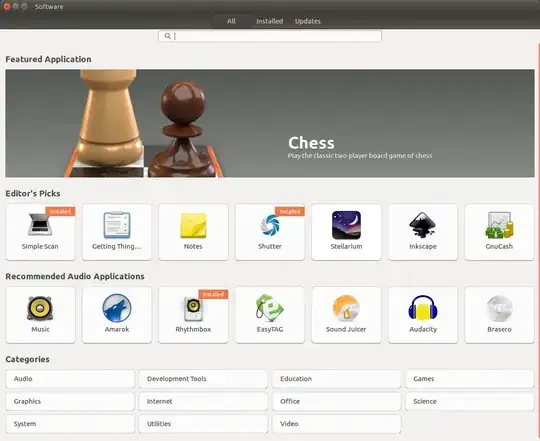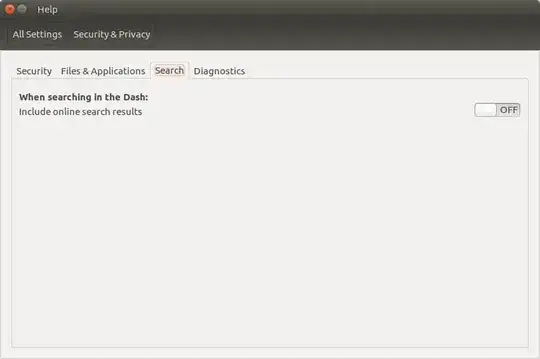To me the stance the FSF takes is to rigid. I also can understand why; if they do not they tarnish their principle: software needs to be free.
Problem though: that would not allow us to play MP3 and MP4 where we need to stick to OGG. Even using a tool to convert it to OGG would violate the FSF stance.
So from a users point of view not really user friendly.
The FSF has the following complaints about Ubuntu:
Ubuntu GNU/Linux
Ubuntu provides specific repositories of nonfree software, and
Canonical expressly promotes and recommends nonfree software under the
Ubuntu name in some of their distribution channels. Ubuntu offers the
option to install only free packages, which means it also offers the
option to install nonfree packages too. In addition, the version of
Linux, the kernel, included in Ubuntu contains firmware blobs.
The “Ubuntu Software Center” lists proprietary programs and free
programs jumbled together. It is hard to tell which ones are free
since proprietary programs for download at no charge are labelled
“free”.
Since October 2012, Ubuntu sends personal data about users' searches
to a server belonging to Canonical, which sends back ads to buy things
from Amazon. This does not, strictly speaking, affect whether Ubuntu
is free software, but it is a violation of users' privacy. It also
encourages buying from Amazon, a company associated with DRM as well
as mistreatment of workers, authors and publishers.
This adware is one of the rare occasions in which a free software
developer persists in keeping a malicious feature in its version of a
free program.
Ubuntu appears to permit commercial redistribution of exact copies
with the trademarks; removal of the trademarks is required only for
modified versions. That is an acceptable policy for trademarks. The
same page, further down, makes a vague and ominous statement about
“Ubuntu patents,” without giving enough details to show whether that
constitutes aggression or not.
That page spreads confusion by using the misleading term “intellectual property rights”, which falsely presumes that trademark law and patent
law and several other laws belong in one single conceptual framework.
Use of that term is harmful, without exception, so after making a
reference to someone else's use of the term, we should always reject
it. However, that is not a substantive issue about Ubuntu as a
GNU/Linux distribution.
So ...
- repositories show non-free and free applications. I am afraid in 16.04 this is still the case and I doubt Canonical is
ever going to give in on this. Commercial applications have a place in Ubuntu. The 1st page that shows does not even tell you that there is software we need to pay for when we want to use it.

- Regarding personal data: Canonical still does this though it is now an opt-in instead of opt-out. It still will not make the FSF happy: they consider Amazon to be evil (they support DRM and claim it abuses its employees). Does the deal with Amazon make most of us unhappy? Maybe. Some users did make a switch to another operating system. Will this stay in Ubuntu? Probably. Ubuntu is not making a profit and this will generate a little bit of revenue. Do I personally like the Amazon link? Well no. It is the 1st to disappear from my launcher and all the "send data to" options are turned off. Minor nuisance ... big deal for the FSF.

Regarding "redistribution". No problems there it seems; the vague comment regarding patents has not stopped someone from creating Mint. Nor any of the other clones (I counted 45 on that wikipage). But have a look at this image: http://futurist.se/gldt/wp-content/uploads/12.10/gldt1210.png (not including it in the post itself). But the spin-offs from Ubuntu is astonishing.
The last one about copyright. There has been a change in that so the FSF is a bit more happy about it.
Conclusion: If Ubuntu ever will become 100% GNU it will not be in the near future. Plus there needs to change a lot in the way everyone looks at using operating systems. MP3/MP4 is not going to go away and if Microsoft keeps supporting those and not switch to OGG we (users) will need the codec to play it. The same goes for the video drivers. nVidia and AMD can support open source but they will also always provide binaries to protect their software.
Not going to happen. Proprietary blobs are not going away in the near future.
Also maybe list the ways you can list all blobs on the system to better highlight what is limiting its GNU stamp of approval.
Search for "restricted" in software center and you will get the codecs that are proprietary. Then there is the additional drivers in dash that will show proprietary drivers.
A kernel with proprietary modules is considered "tainted" (see What does the kernel taint value mean? or https://unix.stackexchange.com/questions/118116/linux-what-is-a-tainted-kernel )
cat /proc/sys/kernel/tainted
will show a number on how tainted your kernel is. And What does the kernel taint value mean? has a list on what the number means (if it shows 75 it means 64, 8, 2 and 1).

